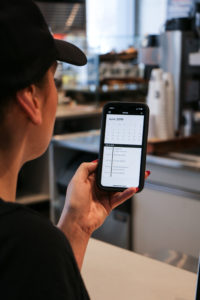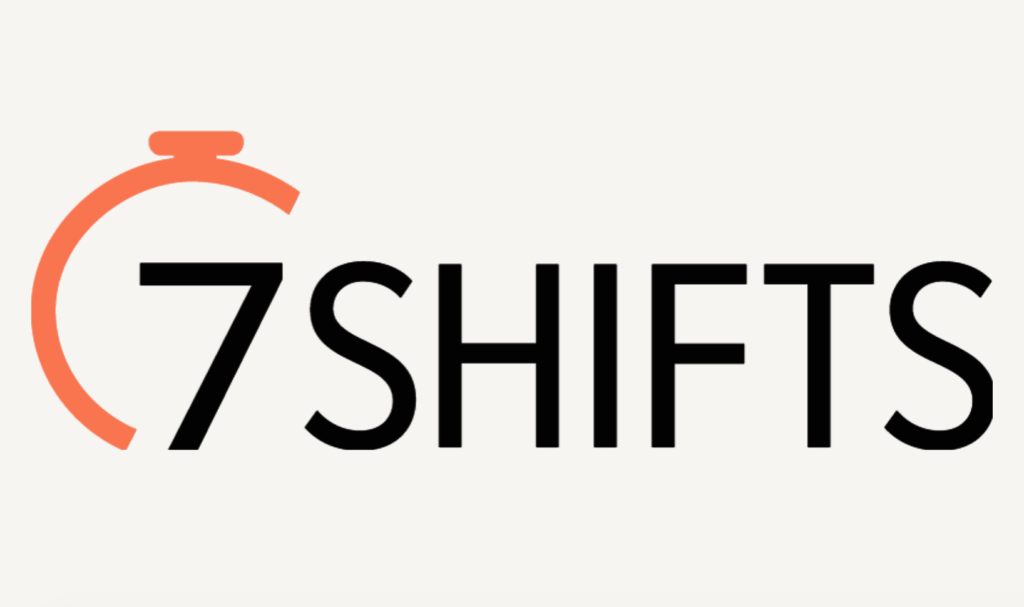Opening a restaurant is no easy feat. It involves up to years of preparation and testing, creating a menu, selecting a location, hiring and training staff and much more. However, maintaining and growing the business can be just as difficult since the foodservice industry is one of the most competitive sectors in the world.
Tasks as simple as scheduling employees or distributing directives to staff can be time consuming for managers, and without a consistent method, it can also be inefficient. 7shifts, an employee scheduling and management software, was created to solve this issue and help save restaurant managers time and money and allow them to stay in control of their business.
Xtalks spoke to Jordan Boesch, the founder and CEO of 7shifts to learn more about the startup story and the evolution of the business, as well as its future in the restaurant industry.
Humble Beginnings
The idea for 7shifts came about after Boesch witnessed his father try to schedule employees at his multiple Quiznos franchises in Saskatchewan, Canada. When employees would call in last-minute to cancel or ask to switch with their colleagues, “it almost undid all the hard work that he was doing in terms of trying to build out the optimal schedule and trying to incorporate everyone’s feedback into it,” Boesch said.

He made it his goal to learn how to write code and build his father something better. From there, 7shifts was born. At first, it was a platform in which his father could upload a spreadsheet and staff could all log into this website and download it. After high school, Boesch moved away from home to attend university while operating 7shifts on the side for his father and Quiznos.
Once he finished school, Boesch expanded his coding skills working as a web developer and started rewriting several aspects of 7shifts. He also enlisted the help of a friend to improve the design. After moving back to Saskatchewan, Boesch quit his software job to pursue 7shifts full-time in 2013. He slowly built up a team of co-founders, moved to San Francisco and got into a tech accelerator in the Bay Area.
“We got a bunch of customers and learned a lot and broke some stuff. And dealt with some angry customers. And then we raised about $150,000 in angel funds after the program. And we decided to take that money back to Saskatchewan,” Boesch said. “And people thought we were kind of stupid and crazy for leaving the tech ecosystem of the world, but we were pretty determined to try and make something work here where we’re based.”
Related: SquarEat Gives New Meaning to Concept of Eating Three Square Meals a Day
The team hunkered down and focused the product to be solely for restaurants. They raised nearly $1 million in a seed round of financing with Toronto, Canada-based Relay Ventures, who are investors in Touch Bistro. They continued raising money and expanding the business to open offices in Toronto and New York City. Now, 7shifts has 200 employees across various locations, with its headquarters in Saskatoon, Saskatchewan.
7shifts’ Business Model
“We started out with scheduling and communication being our core and that was our foot in the door,” Boesch said. “And that was the primary need that we were scratching when people came to find us. But now we do a whole lot more.”

Before 7shifts, restaurant managers would use Excel, Google Sheets or print out paper. Notably, half of businesses are still using these methods, Boesch pointed out. By bringing scheduling online, 7shifts made it accessible for workers to swap shifts, check off tasks during a shift and much more.
So, what does 7shifts look like to its users? When an employee gets hired at a restaurant, they would receive a text or an email invitation to download the 7shifts app and create an account. From there, they would see their estimated pay, hours tips. Boesch dubbed the app a “financial dashboard” for restaurant workers.
Employees primarily use the 7shifts mobile app on their phones to check and trade shifts and communicate with one another. Since the restaurant industry employs the highest number of teenagers out of any private industry, 7shifts wanted to deliver a seamless experience and an easy-to-use interface that all employees could use.
“We do have competitors, but fortunately for us, one of them is a really, really old software company,” Boesch said. “And then some of the other ones are more horizontally focused. They don’t really focus on restaurant-specific things. So again, fortunate for us, because we built something for restaurants that is incredibly simple.”
What sets 7shifts apart from its competitors is that its features are restaurant-specific, such as task and tip management and allowing managers to keep a pulse on their staff. By focusing solely on restaurants, 7shifts uncovered new opportunities and made a name for themselves in the restaurant industry.
 Boesch said the ultimate goal of 7shifts is to own the entire employee lifecycle, from the moment an employee is hired until the time they quit or are terminated. He touched on five elements in the employee lifecycle – hiring, training, scheduling, paying and retaining — that the company wants to own and add value to for its operators.
Boesch said the ultimate goal of 7shifts is to own the entire employee lifecycle, from the moment an employee is hired until the time they quit or are terminated. He touched on five elements in the employee lifecycle – hiring, training, scheduling, paying and retaining — that the company wants to own and add value to for its operators.
Maintaining a Customer Base
Currently, 7shifts is solving team management and communication problems for over 500,000 restaurant professionals around the world, with about 85 percent of its customer base in the US. It works primarily with single-unit independent operators, but also, to a lesser extent, with mid-market and multi-unit locations.
“Typically, a lot of these operators have one or two locations with about 20 to 30 staff each. They typically are using some form of technology for payroll and onboarding. And they typically don’t have anything for scheduling and labor management. So that’s what we help,” Boesch said.

Since most single-unit restaurants do not have a large software budget, 7shifts provides an affordable and efficient alternative that requires little set-up time. It offers everything from a free plan to appropriately-named paid plans, including the Appetizer, Entrée, The Works and Gourmet.
But beyond the app itself, 7shifts has become a source for operators to help them make decisions around things that it has learned from working with the best of the best. So, they built a blog to do just that.
“It’s so hard to operate a restaurant, so if we can make operations easier and focus on just making things really simple for operators, whether it’s giving them a tool set or a set of frameworks that they can use to help their operations, we want to be able to provide that.”












Join or login to leave a comment
JOIN LOGIN